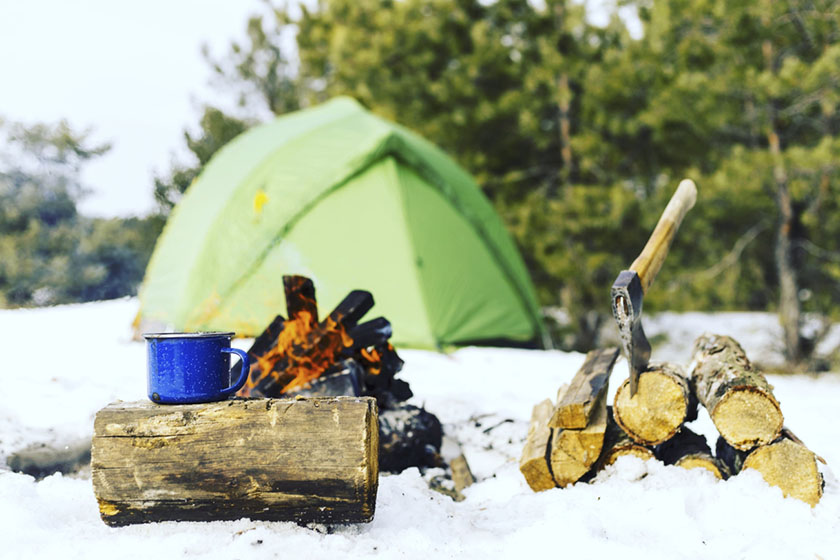
Camping is truly a full immersion activity. Nothing really brings you back in touch with nature and lets you escape the hustle and bustle of life as much as camping does. We are real believers that if more people got outdoors and slept under the stars for a night the world would be a better place. But there are many myths that stop people from getting out on a camping adventure. So we are going to bust some of these myths today!
Camping is uncomfortable
Vacation campers know that the experience is never bad if everything goes according to plan. Going to camp is to push yourself beyond your usual boundaries, so be prepared for some uncomfortable situations. Camping could be perfect if you’re looking for a way to break out of your routine. That’s why it’s never unpleasant if you plan ahead. Learning as much as possible about your camping destination is vital before setting out for the first time. So break those common camping myths and enjoy your bonding with nature.
Eating is a hassle while camping
Camping can make it feel like you’re out of luck when it comes to food, but this is far from the truth. There are tons of great recipes out there that can have you eating like kings under the stars while also not causing you to bring your whole kitchen with you. Prepping your meals before your camping trip is a great way to do this. Instant meals are also a great way to cure that hunger outdoors while also keeping luggage weight down.
It will be cold no matter where you camp
One of the most common camping myths is that you will freeze at night when camping. Frigophobia is the fear of cold experienced by those who camp in tents. But it doesn’t mean it has to be a real fight. If you’re going camping in the winter, you should take extra precautions to ensure you have the right gear for winter camping. Tents and sleeping bags designed for temperatures as low as -5 degrees Celcius are great ways to beat the cold nights. Wearing garments with a water-repellent covering is essential if you want to be warm in the rain or snow. And what about the old wives’ tale that it’s impossible to keep a fire going when it’s raining? That is also incorrect.

You won’t get a good night’s sleep
Clinical sleep educator Martin Reed claims that camping improves sleep quality. According to the creator of Insomnia Coach, “research shows that avoiding artificial light and exposing our bodies to the natural rise and decrease of light associated with dawn and dusk may help reset our internal body clocks and boost sleep quality.” Even if you’re just going to be sleeping in a tent or a cabin, you might as well bring a mattress. The convenience and ease of use of air mattresses have come a long way since the first models were created (in 1889).
Bringing only a GPS is enough is one of the most dangerous common camping myths
There’s no way to pack up and leave the house for a camping trip or overnight stay somewhere else unless you have a map and are familiar with the area. Exploring uncharted territory is thrilling, but not if being lost is a cost you have to pay. Even if your phone has a GPS, you could still get lost in a foreign area for many reasons. This means you need a good compass, map or guide to help you find your way. And while camping is fun, incidents can happen. You need to know how to treat basic injuries and be prepared.
Moss only grows on the north side
Moss prefers cool, damp, and gloomy places to grow. While the north side of trees receives less sunlight in the northern hemisphere, the east, west, and even south sides of trunks can support moss growth due to other trees, giant boulders, and sloping soil. In order to find your way, a compass is a much safer bet. So be sure to pack all the necessities for camping. But be sure not to pack too much. As our friends at Big Man’s Moving Company say, “Less is more.” You don’t want to be over-encumbered by things you will never use.

Camping is bad for your health
Many are concerned that the health risks associated with relocating to a camp in an uncharted location or experiencing significant environmental shifts may outweigh the benefits. However, there are no potential health risks if you adhere to all of the camp’s safety protocols. Camping can even improve your mental health. Of course, you should take the necessary precautions to maintain your health. However, the idea that going to camp can harm your health is entirely unfounded. There is in fact a ton of health benefits in spending time outdoors!
Camping is boring
Those who have never camped are likely to believe this frequent misconception. One only needs to ask a camper to hear how much fun camping can be. You might think there is nothing to do at a camping area, but once you get there, you’ll find that there’s actually quite a bit. Camping with your pals is a novel way to spend a vacation. When you have the right people around you, camping can be the most relaxing and rejuvenating of all the fun things to do.
In conclusion
The vast majority of people actually believe these common camping myths. However, they are totally off-base and wrong. Therefore, get out there and go camping! And if you never tried camping. Just take the first step. After your first adventure, we’re sure you will enjoy regular camping trips with your friends and family.
